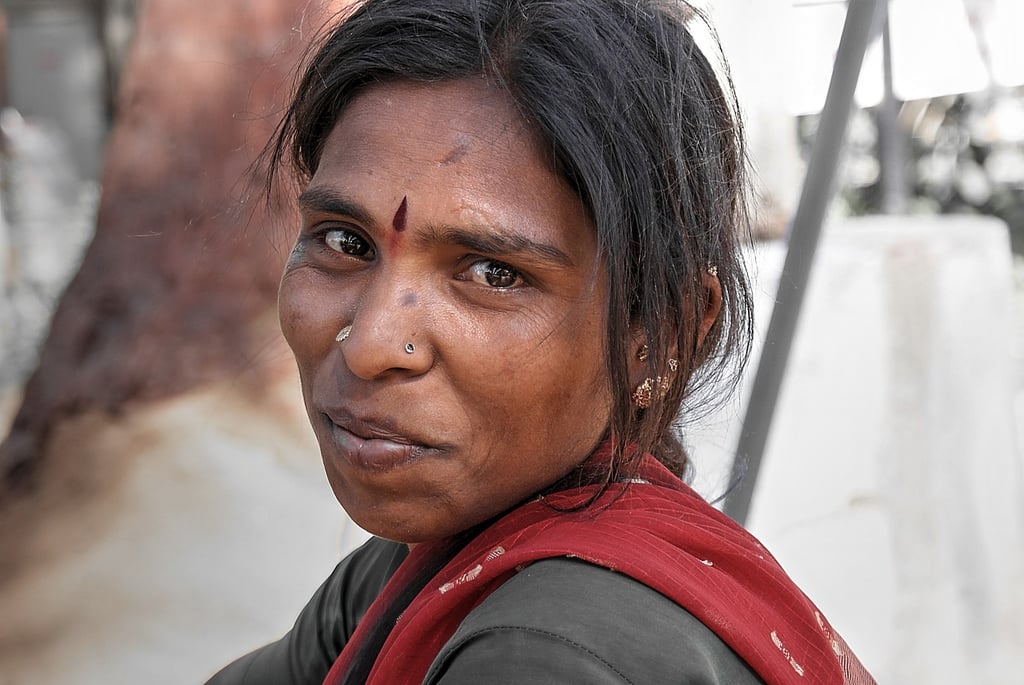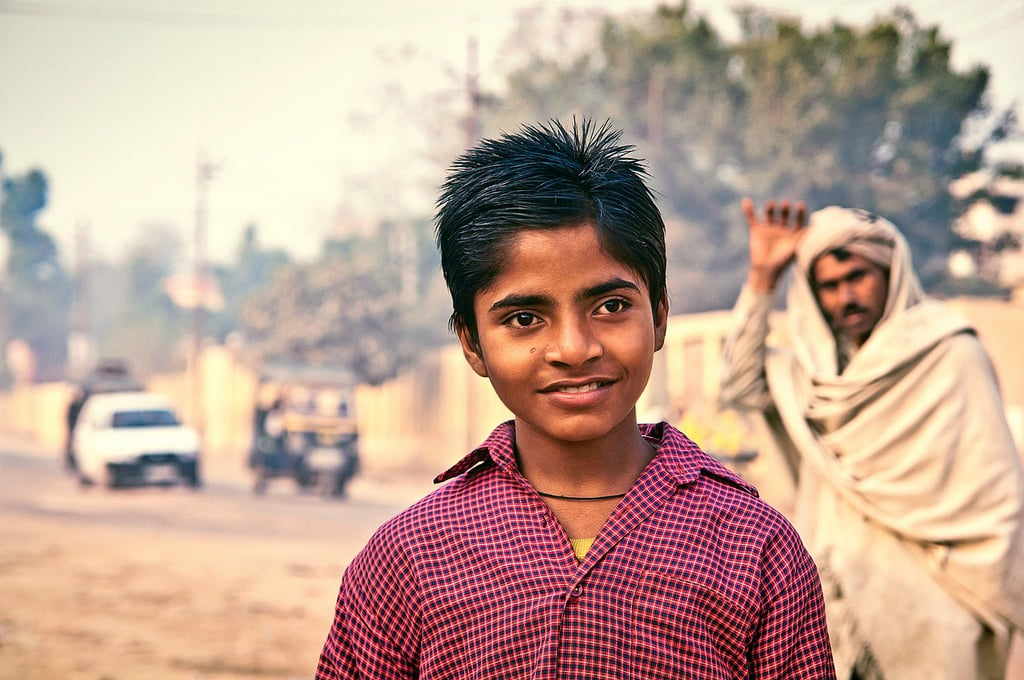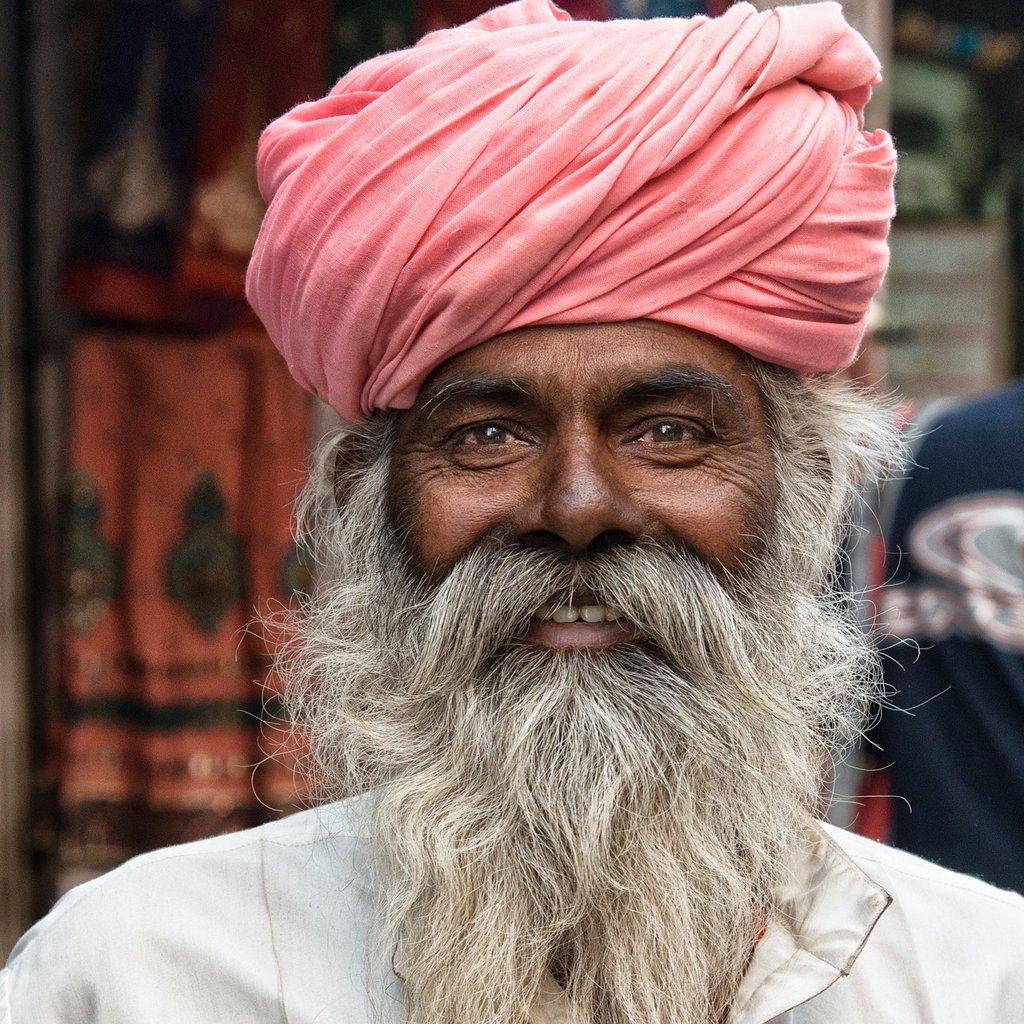
Have you ever wondered why some people from India have a distinctive smell? It's a question that has sparked curiosity and even controversy. However, it's important to approach this topic with sensitivity and respect. In this article, we will explore the reasons behind this phenomenon, dispel any misconceptions, and provide insights into cultural practices and personal hygiene that may contribute to this perception.

The Role of Diet and Spices
The diverse and flavorful Indian cuisine is known for its wide range of spices and herbs. These aromatic ingredients, such as curry, cumin, and turmeric, are often responsible for the unique scent that can be associated with Indian people. The consumption of these spices can affect body odor, as they can be excreted through sweat glands.
Spices like curry contain compounds called phenols and sulfur compounds that can elevate body odor. When these spices are consumed, they are broken down by the body and their aromatic components can be excreted through sweat glands, leading to a distinct scent. These compounds can also give a particular smell to breath and urine.
- Curry powder contains spices like turmeric, coriander, cumin, and fenugreek, each contributing to its distinct aroma.
- Cumin, which is commonly used in Indian cooking, has a strong and distinctive smell that can also linger in the body.
- Turmeric, known for its vibrant yellow color, contains curcumin, which has antioxidant and anti-inflammatory properties but can also contribute to a unique body scent.
Moreover, the richness and variety of Indian cuisine can lead to a diet that is heavily spiced and flavorful, resulting in more pronounced body odors. The use of these spices is deeply rooted in Indian culinary traditions and cultural practices, dating back centuries. They are an integral part of the gastronomic heritage that has been passed down through generations.
It is important to note that while spices can contribute to a distinctive smell, this is not exclusive to Indian people. Different cuisines and spices from around the world can also influence body odor in unique ways. Appreciating the role of diet and spices in body odor allows for a deeper understanding and respect for cultural differences.
Cultural Practices and Personal Hygiene
Personal hygiene plays a significant role in body odor, and cultural practices greatly influence the approach towards personal hygiene in India. While it is true that some people may perceive a distinct smell among Indian individuals, it is essential to understand the cultural context and practices that contribute to this perception.
In India, due to the hot and humid climate in certain regions, people may perspire more than in other parts of the world. This increased perspiration, combined with the use of natural materials such as cotton and silk, can sometimes result in the retention of odors. However, it is crucial to note that personal hygiene practices are prevalent in Indian culture and play a vital role in managing body odor.
Bathing is an essential part of personal hygiene in India. Taking a bath, preferably with soap or herbal mixtures, is a daily practice for most individuals. Bathing not only helps in refreshing the body but also aids in keeping body odor at bay. The use of perfumes and fragrances is also common, with many individuals applying these to mask any potential smell.
- Regular bathing is a common practice in India.
- The use of perfumes and fragrances is prevalent.
- Herbal mixtures and soaps are used during bathing.
Additionally, using deodorants and antiperspirants is increasingly becoming a popular choice among Indians. With a wide range of deodorant brands available in the market, individuals have multiple options to choose from based on their preferences. Deodorants help in keeping body odor at bay by inhibiting the growth of bacteria that thrive in sweat-prone areas.
Despite the general practices, it is important to recognize that personal hygiene habits can vary among individuals within the Indian population. Just like in any other society, some individuals may have different approaches to personal hygiene, leading to variations in body odor. It would be unfair to make generalizations or assumptions about an entire population based on the personal hygiene habits of a few individuals.
Moreover, it is important to consider the influence of cultural diversity within India itself. The country is home to a wide range of ethnic groups, each with their own distinct practices and traditions. Personal hygiene habits, including those related to body odor management, may differ across these diverse communities. Therefore, any discussion about body odor in Indian people must take into account this cultural diversity and avoid generalizations.
In conclusion, it is essential to approach the topic of body odor in Indian people with sensitivity, respect, and a deep understanding of the cultural practices and personal hygiene habits prevalent in the country. While there may be certain factors that contribute to the perception of a distinct smell among Indian individuals, it is crucial not to make sweeping generalizations or assumptions. By appreciating the diverse aspects of Indian culture and engaging in open dialogue, we can promote understanding and acceptance, fostering a more inclusive and informed perspective.

Climate and Environment
India is a country known for its diverse climate and environment. From the tropical rainforests of the Western Ghats to the arid deserts of Rajasthan, the geographical variations contribute to the distinct smells that can be associated with Indian people. The climatic conditions, pollution levels, and exposure to various elements all play a role in shaping body odor.
The hot and humid climate in many parts of India is a significant factor in increased perspiration, which can lead to body odor. The sweat glands become more active to help cool the body down, and this increased sweat production can contribute to a stronger scent. The intense heat combined with high humidity creates an environment that is conducive to bacterial growth on the skin, which further exacerbates body odor.
Moreover, the population density and pollution levels in some urban areas in India can also contribute to the perception of a distinct smell. Pollution in the form of vehicle emissions, industrial pollutants, and waste management issues can have an impact on the quality of the air and the smell in the environment. These pollutants can interact with sweat and body odor and create a unique scent.
In rural areas, where agriculture is prevalent, the use of fertilizers and pesticides can also influence body odor. Exposure to these chemicals can affect the natural balance of bacteria on the skin, leading to changes in odor. Additionally, the strong smells associated with farming practices, such as the smell of livestock or crops, can also contribute to the overall scent of individuals living in these areas.
- The diverse geographical landscape and climate of India contribute to the distinct smells associated with Indian people.
- The hot and humid climate in many regions leads to increased perspiration, which can intensify body odor.
- Pollution levels in urban areas can interact with sweat and create a unique scent.
- Agricultural practices, including the use of fertilizers and exposure to farming smells, can also contribute to body odor.
It's important to approach the topic of body odor in Indian people with cultural understanding and respect. The diverse climate and geographical factors in India contribute to the uniqueness in scents. Understanding these factors helps foster acceptance and appreciation of cultural differences. By recognizing the influence of climate and environment on body odor, we can challenge any stereotypes or misconceptions and promote inclusivity.

Genetic Factors
When it comes to body odor, genetic factors play a significant role in how individuals smell. Different ethnic groups may have variations in the genes responsible for body odor production, and this can contribute to the perception of a distinct smell among Indian people.
There are specific genes that are responsible for the production of chemicals in our sweat, which eventually leads to body odor. These genes vary among individuals and ethnic groups, and they can determine the strength and type of odor produced. In the case of Indian people, they may have genes that produce a scent that is distinct from other ethnicities.
It is important to note that genetic factors interact with other environmental and cultural factors to influence body odor. While genetics play a role, it is not the sole determining factor. Factors such as diet, personal hygiene practices, and climate can also influence how body odor is perceived.
The genetic diversity in India also contributes to variations in body odor among different regions and communities. India is a culturally diverse country with a wide range of ethnic groups and languages. Each group may have unique genetic traits that can influence their body odor. It is crucial to avoid generalizations and remember that individual differences exist within any population.
Moreover, it is essential to highlight that the perceived smell among Indian people is not universal. Just as there are variations in body odor among individuals within a population, this applies to different Indian individuals as well. Each person has a unique combination of genetic factors that contribute to their body odor profile.
- In conclusion, genetic factors play a role in the perception of body odor among Indian people.
- Genes responsible for body odor production can vary among individuals and ethnic groups.
- Genetic diversity within India leads to variations in body odor among different regions and communities.
- Individual differences exist within the Indian population, and not all Indian individuals have the same distinct smell.
By recognizing and understanding the genetic factors at play, we can appreciate the complexity of body odor and how it differs among diverse populations. It is crucial to approach this topic with sensitivity and respect, acknowledging the various factors that contribute to body odor perception among Indian people.

Cultural Diversity and Individual Differences
India is a culturally diverse country, home to various ethnic groups, languages, and customs. This diversity is fundamental to understanding the differences in smells that may be associated with Indian people. Each region and community in India has its own distinct traditions, including diet, hygiene practices, and clothing choices, which can influence body odor.
Food plays a significant role in Indian culture, and the use of aromatic spices and herbs is prevalent. The consumption of these flavorful ingredients can lead to their excretion through sweat glands, resulting in a distinct scent. For example, the pungent flavors of curry and cumin, commonly used in Indian dishes, can contribute to the body odor perceived by some individuals.
Moreover, climate and geography also contribute to the diversity of smells in India. The country experiences a range of climates, from the hot and humid regions of the coastal areas to the cooler and drier climates in the northern regions. The weather conditions and temperature variations can impact the production of sweat, thereby influencing body odor. Additionally, different regions have their own specific environmental factors, such as pollution and exposure to various pollutants, which can interact with sweat and contribute to the perception of distinct smells.
Cultural practices and personal hygiene also play a role in the diversity of smells in Indian people. While personal hygiene practices such as regular bathing, using perfumes, and applying deodorants are common, it is important to recognize that preferences may vary among individuals and communities. Traditional choices of clothing material, such as cotton and silk, which are commonly worn in India, can also influence the retention of odors.
It is vital to approach the topic of body odor in Indian people with an understanding of the cultural diversity and individual differences present in the country. Stereotyping or generalizing the smells associated with Indian people can perpetuate misunderstandings and biases. By celebrating the richness of Indian culture and engaging in open-minded conversations, we can appreciate the unique characteristics and diversity within the Indian population and promote cultural understanding and inclusivity.
The Importance of Cultural Understanding
Cultural understanding plays a crucial role when discussing the topic of body odor among Indian people. It allows us to appreciate the diversity and richness of Indian culture, as well as recognize the unique practices and traditions that contribute to their identity.
- Dispelling Misconceptions: One of the key reasons why cultural understanding is important is because it helps dispel any misconceptions or stereotypes surrounding body odor in Indian people. By learning about the cultural factors that influence body odor, we can challenge any preconceived notions and approach the topic with empathy and openness.
- Embracing Diversity: India is a diverse country with multiple ethnic groups and languages. Each region and community has its own distinct scent influenced by various factors such as diet, climate, and personal hygiene practices. Cultural understanding allows us to embrace this diversity instead of making sweeping generalizations.
- Building Bridges: By engaging in meaningful conversations about body odor and cultural practices, we can build bridges of understanding and empathy between different cultures. This can help foster greater acceptance and appreciation for the unique aspects of Indian culture.
- Fostering Inclusivity: Cultural understanding promotes inclusivity by valuing and respecting different cultural practices, including those related to body odor. It encourages us to celebrate differences rather than viewing them as deficiencies or peculiarities.
- Learning from Each Other: When we approach the topic of body odor in Indian people with cultural understanding, we open ourselves up to learning from one another. We can gain valuable insights into different approaches to personal hygiene, the role of spices and diet, and how climate and environment can impact body odor.
In conclusion, cultural understanding is crucial when discussing why some Indian people may have a distinctive scent. It allows us to dispel misconceptions, embrace diversity, build bridges of understanding, foster inclusivity, and learn from one another. By approaching the topic with empathy, respect, and an open mind, we can promote cultural appreciation and break down stereotypes surrounding body odor in Indian people.
In conclusion, the perception of a distinctive smell among some Indian people can be attributed to a combination of factors, including diet, cultural practices, climate, and genetics. It is crucial to approach this topic with sensitivity and respect, recognizing the importance of cultural understanding. By appreciating the diverse aspects of Indian culture and engaging in open dialogue, we can promote inclusivity and dispel any misunderstandings regarding body odor.
Faqs
-
Is the distinct smell among Indian people due to poor hygiene?
No, the distinct smell among Indian people is not necessarily due to poor hygiene. Personal hygiene practices such as regular bathing, use of perfumes, and deodorants are prevalent in Indian culture. However, factors such as diet, spices, climate, and genetics can contribute to body odor, which may be perceived differently among individuals.
-
Do all Indian people have the same distinct smell?
No, not all Indian people have the same distinct smell. India is a country with diverse ethnic groups, languages, and cultural practices. Different regions and communities may have their own unique scents influenced by various factors like diet, climate, and personal hygiene practices. It is important to avoid generalizations and embrace the cultural diversity within the country.
-
Can the distinct smell among Indian people be eliminated?
The distinct smell among Indian people is not something that can be completely eliminated, as it is influenced by a combination of factors including diet, spices, climate, and genetics. However, personal hygiene practices, such as regular bathing, application of perfumes, and use of deodorants, can help manage body odor and reduce its intensity. It is also important to remember that body odor is a natural phenomenon experienced by people of all cultures, and it is essential to approach the topic with sensitivity and respect.

